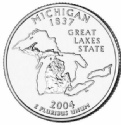OWNING A COIN SHOP TODAY
By Daniel Sheffer
There are a lot of misconceptions about running a coin shop. Many collectors (but certainly not all) seem to believe we make huge profits. Now, every dealer has a “home run” story. It may be they were able to purchase an odd medal that turned out to be a one of a kind, or a coin that when submitted to third party grading, was returned in a holder declaring a much higher grade than the dealer expected. However this is the exception to the rule, especially for dealers who operate a store front.
One often heard complaint is that we charge too much for silver American Eagles. “But spot is only $14! Why are you charging $19? You are making $5!” Is an example of what we often hear. This is not true. Silver Eagles cost about $3 per coin over spot for the small dealer who can only afford to buy 100 or so at a time. Then if Spot prices fall, by say a Dollar or two, we are losing money on each. The same is true for silver bars. We have to pay a premium to obtain new stock. Yes we pay less when we purchase from the public, but those are usually scratched, tarnished, etc. and don’t sell well, even if offered at a discount. Bullion was a good thing to have in inventory in previous years, but bullion has been a source of stress, not profit for dealers in 2015.
Numismatic coins, tokens, medals, and paper money has not fared much better. I see far fewer true collectors than I used to. By “true collector” I mean a collector who forms a collection of something. Rather most customers are hoarders and accumulators taking advantage (as they should) of the lower prices. They buy random items that are cheap. They may stop into the store and buy 5 proof sets, some two cent pieces, a few silver certificates, and some silver bars. Their next visit will likely having them buy none of the above, instead buying a whole different assemblage of items. There is no reason to what they buy, except that it’s viewed as “cheap” compared to what the items used to cost, and what they feel the items may be worth in a better market in the future. This is speculating, not collecting. But as long as the shop owner buys and quickly sells these items, making a small profit, it helps the bottom line and keeps the store from becoming cluttered with inexpensive coins and notes. But is it good for numismatics? Time will tell.
While collectors and accumulators what to pay the lowest price possible, remember that the shop owner needs to make a profit in order to pay their bills, and therefore stay in business. You enjoy having his or her shop there so you can go in and browse and add to your collections. But you will be unable to if the business can’t pay their bills and goes out of business. I enjoy going to used book stores to look for books on historic topics. I try to find at least two books to buy. Even if I know I will not get around to reading them for some time. But I often buy bags full of books that I know, given time I’ll read. These purchases, no matter how small, help the bottom line of those stores. And my purchases help ensure that the stores I enjoy will remain there for many more years. The same is true of coin shops. If the shop staff is kind, takes the time to answer your questions, and the staff keeps the store neat and clean, reward them with a purchase each time you visit.
Coin dealers, at least successful, ones do not stop working when the shop is closed. They must stay up to date on current Mint issues, the latest known fake coins on the market and how to detect them so they avoid buying them. They must travel to coin shows, they may sometimes travel to buy collections, go to coin club meetings, and much more. It’s a true full time job that goes far beyond 40 hours a week.
So what will 2016 hold? I think silver and gold may increase in price as the year goes on being an election year. The uncertainty of who will be next to occupy the highest office in the land always makes people on edge financially. Buy as a store of value for the long term. You will not see profits for a while. The purpose is to have a reserve to fall back on in uncertain times. If your local dealer is charging an extra $1 today, buy it anyway. You will become a familiar face and when the dealer has some bargains, you will get first chance to buy them. It will pay off in the long run. Often customers come pouring into shops as soon as silver dips lower. Obviously the dealer didn’t buy the stock at the current price. See your dealer early in the year and stock up. If you are a collector forming a collection, you will be a welcome site to the local coin shop owner. And if you like to accumulate low price items such as proof and mint sets, with an eye to the future, you will also be a welcome site to the dealer who wants to keep his or her shop clean and organized.
Coin shops are needed to keep your collections valuable. Coin dealers make a two way market where coins are bought and sold. You wouldn’t want a bunch of unknown collectors coming into your house to buy coins. You want to take them to a safe secure location where the owner will purchase the whole collection. And you also wouldn’t want to go to an unknown person house with cash to purchase their coins. Sadly too much crime takes place to be this trusting. Coin dealers serve as a middle man to buy and sell. Without them, the numismatic market would collapse and our treasures would become very difficult to sell. So take some time to visit your local coin shop. Travel to see ones further from home from time to time. Be sure to buy something. And as always, happy collecting!









